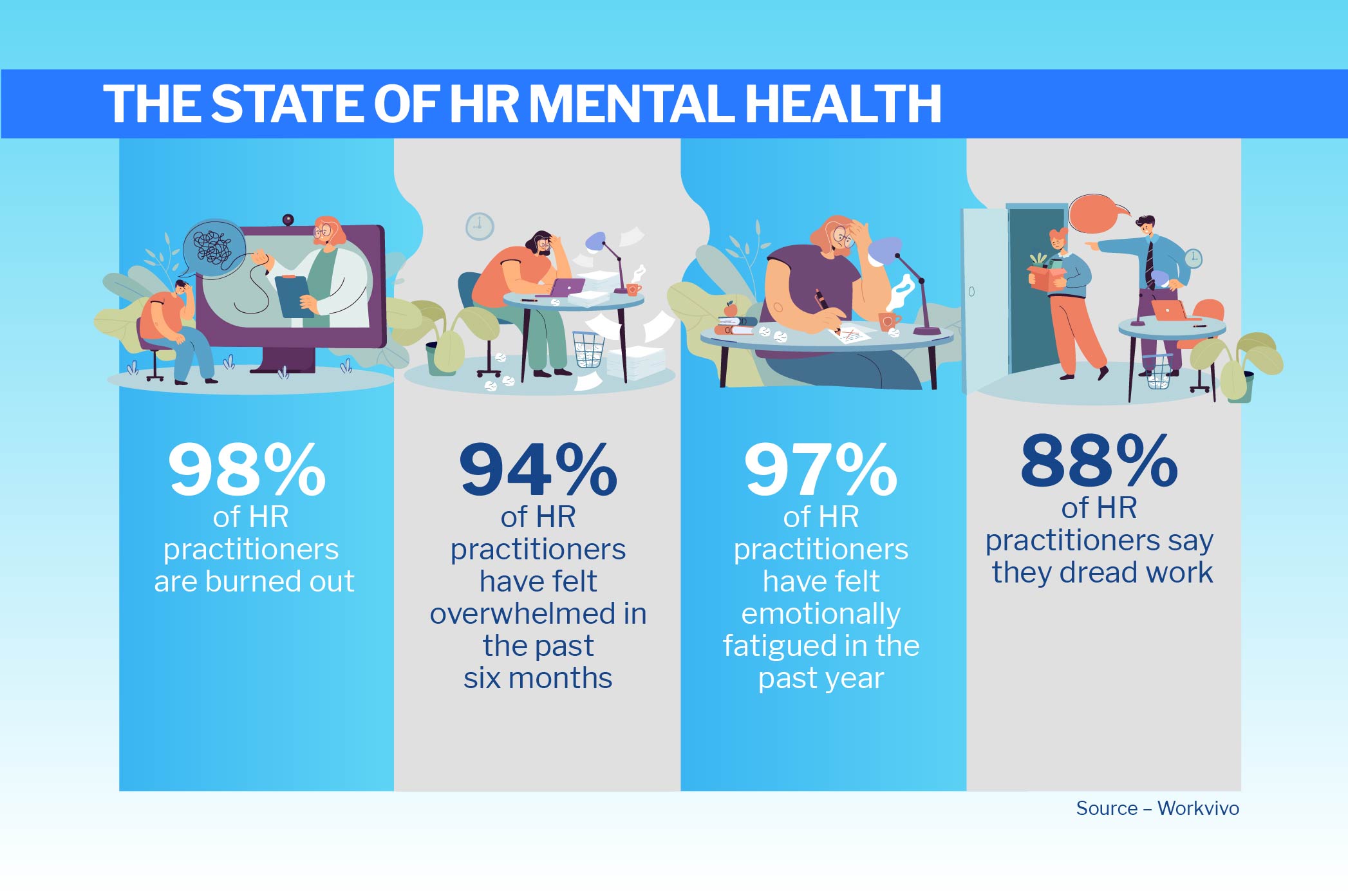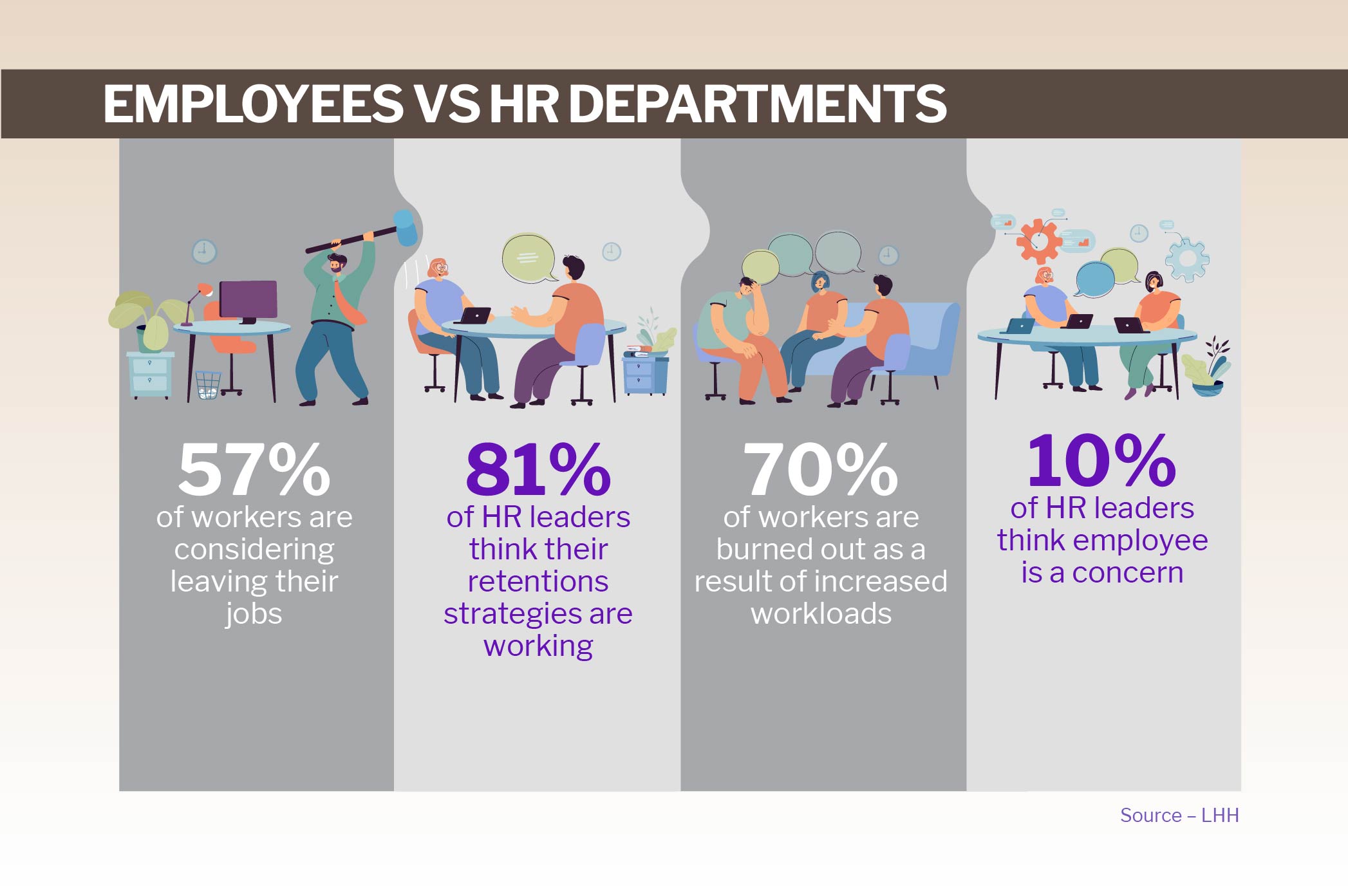
HRD sits down with industry leaders to debate 'curse of kindness' in people sector

As long as there’s been an HR function, there’s been assumptions about the type of person suited to it. The ‘fun police’, the ‘smiley face function’, the ‘compliance cops’ – we’ve heard them all.
However, the one consensus that seems to run through all the assumptions is that to be in HR, you have to be a ‘people person’. But is that really true? HRD spoke to a collection of industry leaders to gauge the answer once and for all.
“When people share that they want to go into HR because they love people, I cringe,” admits Dr Melanie Peacock, former associate professor of HR at Mount Royal. “I then respond by saying - yes with a bit of a sarcastic tone and twinkle in my eye – ‘I hope that you love to tell people that they didn't get the job they applied for or that their performance is not up to par or that there won't be any compensation increases or that their employment with the company has ended’.”
However, Dr Peacock still believes that any good HR professional should care about people as they deal with employees through the entire life-cycle of employment.
“This means that we get to share in some wonderful moments - hiring, promotions, learning new skills - but we must also interact with people at some of their lowest points. So, loving people isn't enough. Wanting to balance kindness and compassion with strategic thinking and an array of technical competencies is why someone should go into HR.”
Earlier this year, Chris Williams, former VP of HR at Microsoft, made headlines when he declared that HR isn’t really your friend.
Speaking to Insider, Williams said: “Do not see your team's HR representative as a friend. It's easy to see them as one — they're right there, they are a people person, and they will listen. But, simply put, HR is not your friend.”

HR is paid by the company to solve problems either between employees or with the company and its policies, according to Williams. And while that might not be the most popular opinion, it is factually accurate. Why then, do people assume you need to be a people person to excel in the function? Well, it could have something to do with brand image and reputation.
HR is the face of a company – they’re the ones managing any bad press of PR fallout. As such, a knack for dealing with people is a ‘nice to have’, but it’s not a deciding factor.
“You don't have to love people to work in the people industry, but it helps,” says Gary Parsons, CEO of Talk Staff. “What makes those people successful is the drive, vision and the fact that they care about the people that they are supporting and developing.
“It's worth remembering that there are many accidental managers, who have expertise in sales or human resources itself, who are driven by different dynamics. A diverse workforce, including a mixture of those who enjoy working on policy over people, is a healthy organisation that will thrive.”
It’s also worth remembering that employees often have a different picture of HR than practitioners themselves. According to a report from Team Blind, 70% of employees don’t trust HR – with 42% saying they don’t feel comfortable reporting issues to their HR rep. It’s this disconnect that could be fuelling wrong impressions of HR – and the people in the industry as a group.
For David Franks, former chief people officer at global biotechnology company Novacyt, he doesn’t believe you need to be a people person to work in HR – instead, you should be more of a data-driven individual.
“I don’t believe you need to be a people person in order to work in HR, or to be successful in the profession,” he tells HRD. “You need to be a businessperson. To be credible and effective, HR processes, systems, interventions – call them what you want – have to be placed in context.
“I’d happily be quoted as saying that anyone using ‘I’m a people person’ or ‘I love people’ as a statement of credentials for working in the profession isn’t winning any points in my book, and it would never appear on any role profile I have ownership for.

“Managers stating they love people might be more interesting, but that’s a different conversation altogether. I would be far more interested in employees who said they love P&L or that they love data.”
And Dr Raeleen Manjak, CHRO at the City of Vernon, sems to agree – conceding that while being a fan of people may be a good starting point, it’s in no way enough to excel and thrive in the role.
“A genuine interest in the wellbeing and success of fellow humans is foundational; however, do the research, determine which segment of the craft and practice of HR is of interest,” she tells HRD. “Be sure that you have a vision of what your career trajectory could look like. Really dig in and find the WHY. Be strategic in how you wish to move forward.
“Understand that every employee at every level needs to be aware of their part in moving the culture and supporting an empowered team. This all takes commitment and an ability to communicate. But most importantly, be an inspiration. Rise through the practice of servant leadership and truly transform the workplace.”
In a role like HR, practitioners wear a million different hats. You need to be nuanced in all areas of the organization – however, you’re not a specialist in them so to speak. As Dr Manjak tells HRD, HR is about people, HR is about data and technology, HR has a legal component, and HR is relational.
“However, in most cases, HR practitioners are not social workers, psychologists or therapists,” she warns. “They can certainly assist and refer to those specialized areas should an employee require care that is outside of the parameters of the services offered within the corporate environment. HR is about facilitation, coaching, and mentoring and should embrace this mindset with much gusto; however, it’s important to understand where those differences lie.”
And Adam Gellert, CEO and founder of HiredHippo, agrees. He tells HRD that while many people believe that a passion for people is the primary criterion for a career in HR, the reality is more intricate.
“To excel in HR, one needs to recognize how individuals drive an organization's success and master the art of harmonizing the interests of both employees and the ever-evolving needs of a company, no two days are the same. People who want to get into HR don't always realize just how demanding of a role it is.
“Thinking it's about loving people is not true and not a reason to get into the profession. HR is often being asked to stretch resources thin, and the person everyone goes to for help but has nobody to go to themselves.”
People entering into HR believing it’s all smiles are in for a rude awakening. On the extreme end of the scale, if a ‘people person’ does wind up in HR, can that innate kindness actually be a bit of a curse?
“When it comes to liking people, I’d almost argue it’s a disadvantage,” says Franks. “Strong HR professionals are able to balance the needs of the business with the needs of its people, and ‘liking’ people can mean you end up taking an employee voice when a ‘firmer’ stance is needed.
“This doesn’t mean that employee wellbeing isn’t important, or that organizations shouldn’t be employee-centric. Nor does it mean that you don’t need to know your subject matter. It simply means that the most effective HR professionals, at any level of seniority, are those who understand the business they are in, what it is there do deliver, and that they are trusted – as adults – to make the right decisions and deliver outcomes.”
Whatever your thoughts on how much of a people person HR leaders should naturally be, the general consensus is that it’s a good place to begin with – but it’s by no means the be all and end all of the role.
“The ones who truly leave a mark are more than just compassionate listeners,” adds Gellert. “They lead and emerge as strategic visionaries, innovative thinkers, and often, the backbone of every organization, the unsung heroes ensuring harmony and well-thought-out growth and champions of the workplace."
As the HR sector has progressed post-pandemic, turning into more of a strategic business partner, so too have the people in it. It’s not about patting people on the backs or ticking admin boxes or organizing the Christmas party, HR is much more of a data-driven, business orientated function.
“At the end of the day, we should never forget that even with all of the analytical and data and tech components, HR is about people and all of the data relates to those people,” says Dr Manjak.
“There are many occupations out there that are people focused that may not have the challenge of HR work. But if you take the leap, the reward is amazing.”